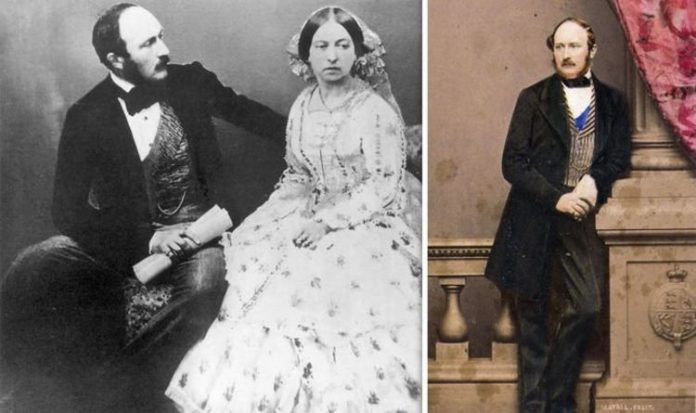Queen Victoria famously dressed in widow’s black from the day her beloved husband, Prince Albert, died in 1861 until her death in 1901. For over 100 years, Albert’s demise was attributed to typhoid fever but, more recently, doctors and pathologists have argued that it was something more. Albert died at the age of 42 after a four-week illness in the winter of 1861 – citing vague symptoms of insomnia, leg and arm pain and loss of appetite.
But, as Dr Howard Markel points out, the details released to the public about the prince’s illness were “incomplete, vague and imprecise” despite the Royal Family fearing he was unlikely to survive.
In the era before antibiotics and intravenous fluids, a bout of typhoid typically lasted 21 to 30 days, and either ended in death or, if the body was strong enough to fight it off, a slow and steady recovery.
Several weeks before Albert’s death, he heartbreakingly confessed his lack of desire to survive.
He is said to have told Victoria: “I do not cling to life. You do; but I set no store by it. If I knew that those I love were well cared for, I should be quite ready to die tomorrow … I am sure if I had a severe illness, I should give up at once.
“I should not struggle for life. I have no tenacity for life.”
Dr William Jenner, Albert’s consulting physician, declared that he was suffering with typhoid and noted the emergence of a pink rash on the prince’s skin in his clinical notes.
Victoria herself remarked that Albert “had a horror of fever”.
READ MORE: Queen’s surprise move that mirrored Queen Victoria’s darkest days
And, in recent years, doctors have argued over what killed Albert.
Dr Markel points out that Albert had a “lengthy medical history of intermittent abdominal cramps, occasional intestinal obstruction, anorexia, diarrhea, fatigue and rheumatic joint problems”.
Some have even argued that Albert died of a form of abdominal cancer and point out this was in his family – the prince’s mother died of stomach cancer at the age of 30.
Others have argued that Albert may have suffered from either Crohn’s disease or ulcerative colitis, complicated by a perforation of the bowel, sepsis and death.
Ultimately, the mystery will never be solved but Albert will go down in the history books as a defining figure of the Victorian age, and a man who died far too young.







